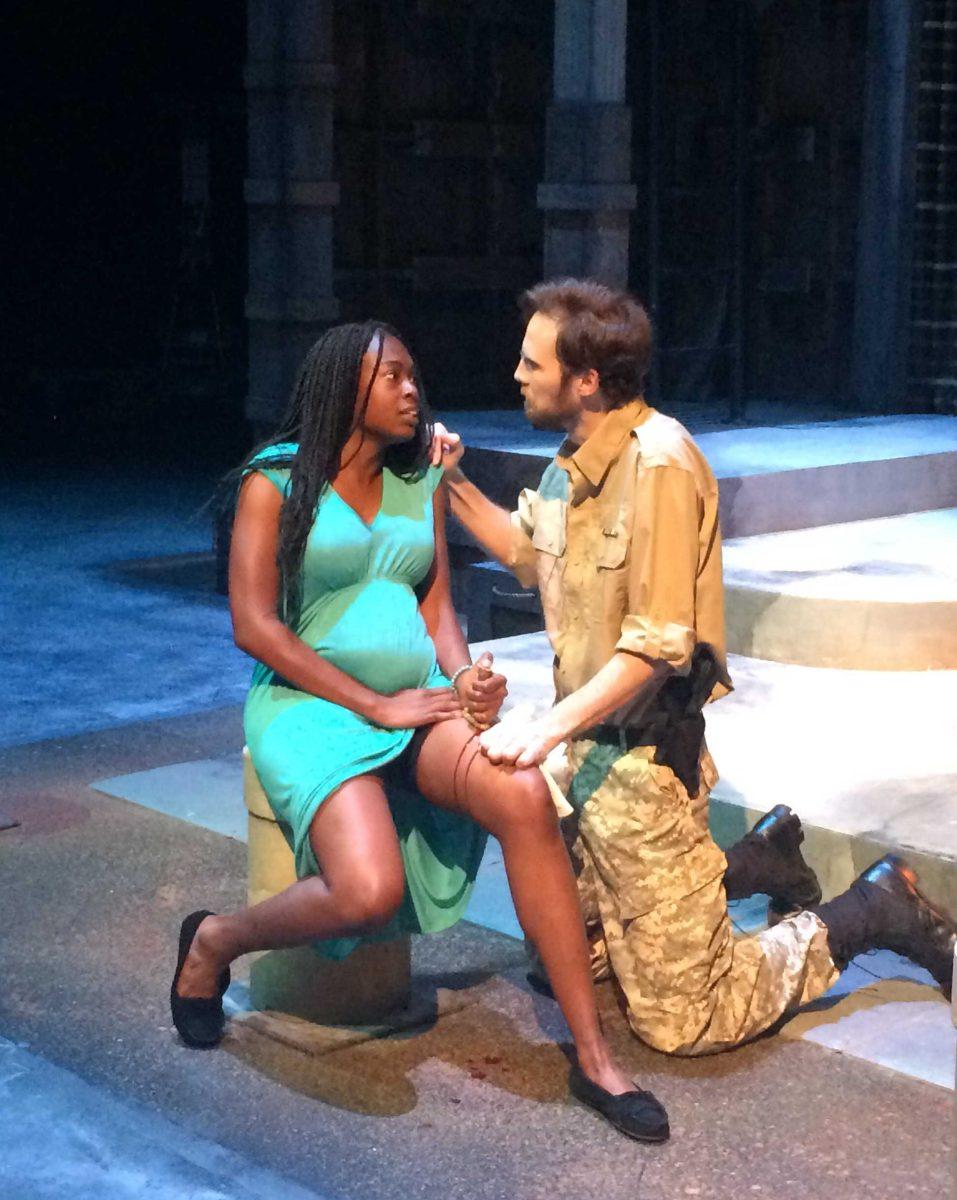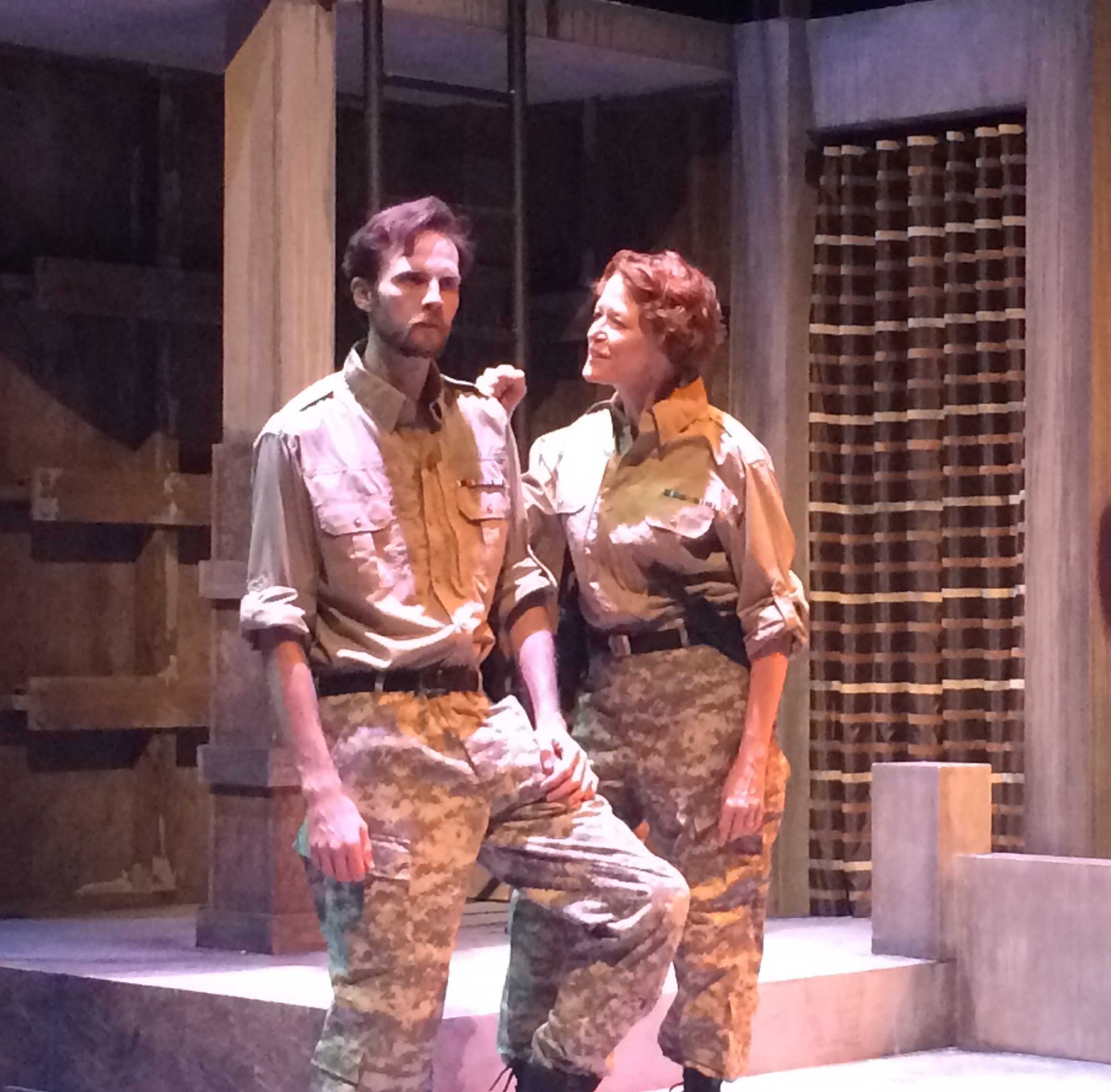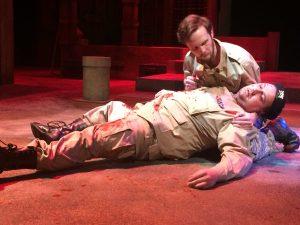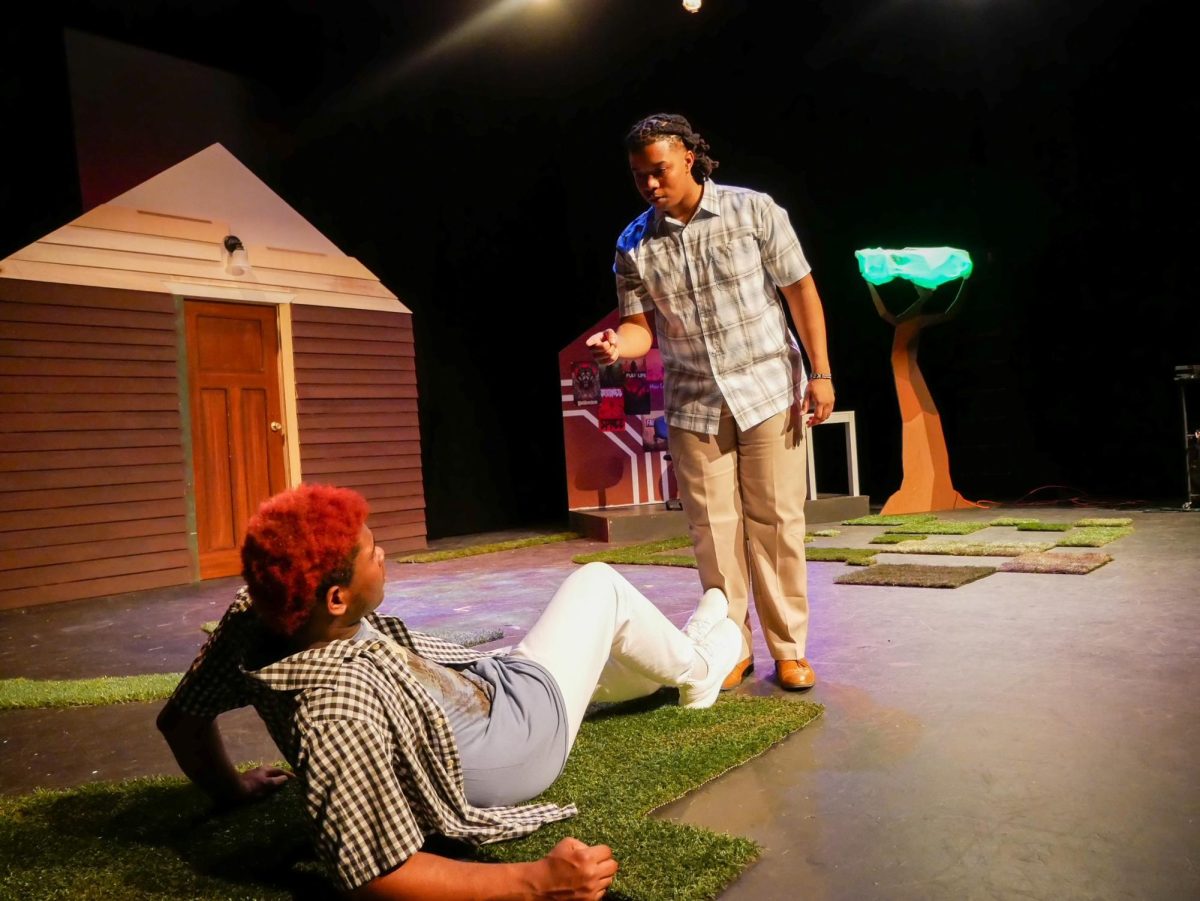Swine Palace is bringing Shakespeare’s classic tale of power and betrayal to the Reilly Theatre for a five-day run of “Julius Caesar” beginning July 20.
In this modernized production, directed by University of California, Irvine professor Jane Page, the cast brings the tale into the “near now,” incorporating contemporary set pieces, military-style costumes and digital technology into the plot line. The juxtaposition of the contemporary scenic elements and the traditional Shakespearean English reflects the timelessness of the themes of justice, power, honor and ambition.
For Page, the idea of exploring the media as a tool of manipulation was especially intriguing in today’s media environment and presidential cycle, she said. Actors utilize iPhones and live streaming-style video throughout the show, and many of the play’s key off-stage developments are relayed via a CNN-style broadcast on an overhead screen.
Theatre performance junior Glenn Underwood said he hopes incorporating technology leads the audience to reflect on the influential power of information and rhetoric.
“It’s a really nice scope, a glimpse, into how media and how people in power can influence the masses,” Underwood said. “In this digital age, whenever we have all information available to us at all times, we really have to, as a culture, as a people, and as a world, recognize how people are able to sway our minds. It’s our duty.”
Both Page and Underwood said the play perfectly parallels current events and the nation’s political climate.
Theatre performance senior Maja Dupas said the conflict between Caesar and the senators reminded her of the national conversation surrounding police brutality and the Black Lives Matter movement. Both situations involved miscommunication and the need for deeper analysis, she said.
Dupas said the play is an opportunity to see all perspectives of a complicated issue. She said the material can serve as an opportunity for self-reflection, and audience members can contemplate the ideas of right and wrong, justice and power, and assess how their personal views compare to the characters’.
Another contemporary issue addressed in the production is gender equality. Page said she chose to change the roles of Cassius and Casca, both conspiratorial senators, from men to women to better explore gender politics and the position of women in society.
Hollis McCarthy, an Equity actress from New Jersey, portrays Cassius with an emotional and fiery, yet guarded take on the character. She said she
often thought about her sister-in-law’s experiences as a prominent naval officer as she approached the struggle of being a woman in a man’s world.
McCarthy said it’s exciting to play a strong female politician at a time when women are rising to the top and breaking the glass ceiling.
“For Cassius to be one among equals, and to lead in many instances, it’s an exciting time to be a woman and it’s an exciting play that way I think, more than it would be if it were old guys in togas,” McCarthy said.
The lack of a traditional set and costuming also helps to democratize the play and open it to a broader audience, she said. Underwood said the use of contemporary scenery and costumes increases the audience’s sense of the play’s reality and helps the play’s message transcend time and space.
The idea of accessibility and bringing Shakespeare’s message to the people was important to both Page and the actors.
Page said the contemporary setting allows audience members to cut directly to the heart of the story, instead of unpacking both Shakespeare’s heightened language and an Elizabethan setting. To further the play’s accessibility, Page also trimmed the production down to an 85-minute run time.
University Master of Fine Arts graduate Colt Neidhardt, the production’s Julius Caesar, said that interpreting Shakespeare’s work and bringing fresh ideas to the forefront is the key to art’s longevity.
“Art doesn’t exist in a museum,” Neidhardt said. “It can’t be dusty. It can’t just sit there. We have to continue its relevance and keep bringing Shakespeare’s work forward. We have to take these new takes on it and I hope that they see their own community in it even though we are placed thousands of miles away.”











